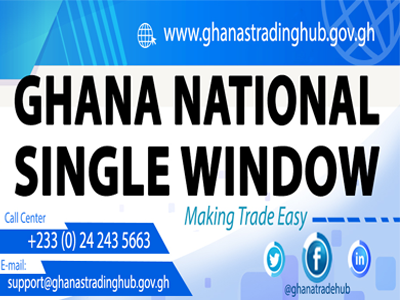Burkina Faso makes strides in implementing key trade facilitation measures
21 February 2019
By Richard Chopra, Director, WCO Sweden ProgrammeThe Customs Administration of Burkina Faso recently implemented two key measures to facilitate trade: the establishment of an Advance Ruling Mechanism on tariff classification, and the performance of Time Release Studies. Both of these measures are prescribed in the World Trade Organization’s (WTO) Agreement on Trade Facilitation, namely in Article 3 and 7.6 respectively.
“Advance rulings” generally refer to the prior decisions (“rulings”) issued by Customs on the classification, origin and valuation of commodities prior to their importation or exportation, at the request of an economic operator planning a foreign trade transaction. These rulings are used to enhance the predictability and transparency of the Customs clearance process, and are instrumental in delivering an effective and informed Customs compliance programme.
The benefits of such rulings are twofold: firstly, traders enjoy greater certainty with respect to Customs requirements and duty liabilities, as well as a lower likelihood of Customs intervention; secondly, Customs administrations receive advance information on anticipated international trade transactions that can be fed into their risk management engines.
As to the implementation of the second measure: the WCO Time Release Study is an internationally accepted tool to measure the actual time taken for the release and/or clearance of goods – from the time of arrival until the physical release of cargo – as well as to measure the effectiveness and efficiency of border procedures relating to imports, exports and the transit movement of goods.
In implementing these two measures, Burkina Faso Customs benefited from WCO assistance in the areas of project management and stakeholder engagement. The WCO provided this support as part of its West African Customs Administrations Modernization (WACAM) Project, which is funded by the Swedish Government. The Project is designed to bolster Customs modernization in West Africa, particularly in the fields of strategic management, human resource management, and stakeholder engagement.
Burkina Faso Customs adopted a project management methodology and communicated it to its Customs officers. It also established a Project Management Unit to oversee the implementation of the methodology and of the strategic plan, as well as oversee officer training on project management.
Advance Ruling Mechanism
The roadmap for the establishment of an Advance Ruling Mechanism in Burkina Faso included:
- consultations with the private sector;
- development of an advance ruling procedure and supporting legal framework;
- development of technical skills in the area of goods classification, with the WCO training local officers to train their peers;
- development of databases to electronically collect advance ruling requests and issue rulings;
- sensitization of all Customs frontline staff and of the private sector.
“We are committed to providing traders with advance rulings on the classification and origin of goods, and to measuring the time taken for the release of goods as a means of enhancing our procedures and facilitating trade. For this, it is essential to adopt a proper project management methodology, and to integrate modern management practices into the organization’s culture.”
Adama Sawadogo, Director General, Burkina Faso Customs
The Mechanism was piloted with trusted traders in 2018, with the department in charge of the nomenclature responding to traders’ requests. Trader feedback on whether advance rulings were actually helping the Customs clearance process was positive.
Burkina Faso Customs formally launched the Advance Ruling Mechanism a few weeks ago. The next step is for the Administration to reach out to the private sector and – depending on the number of requests it receives – to boost its nomenclature department.
Time Release Study
The WCO Time Release Study (TRS) Guidelines served as the document of reference in preparing the country’s first ever TRS. The average time for the release of goods from entry into the country at the Port of Ouagadougou to their release was measured to be five days and two hours. To reduce the average release time, key recommendations for improvement included:
- enhancing risk management capacity by strengthening data analysis skills;
- ensuring that the results of risk assessment are actually implemented by frontline officers;
- developing the competencies of the team in charge of post-clearance audit (PCA) and expanding the implementation of PCA, which is currently used insufficiently;
- increasing the working hours to seven days a week, and harmonizing the opening hours of all regulatory agencies at the Port;
- reducing redundant physical inspections;
- facilitating online payment;
- considering the implementation of a Single Window.
“The TRS allowed supply chain stakeholders to get a better picture of the obstacle course represented by the Customs clearance process and of the value of reducing the time taken to release goods.”
Julien Zoungrana, President, Professional Association of Freight Forwarders and Authorized Customs Brokers
An action plan to implement the recommendations is to be agreed by all relevant stakeholders.
The establishment of an Advance Ruling Mechanism and the publication of the TRS results will enhance trade predictability in Burkina Faso. In fact, the efforts made to develop these two vital trade facilitation measures have already greatly contributed to improving collaboration between Customs and the private sector.
More information
capacity.building@wcoomd.org

